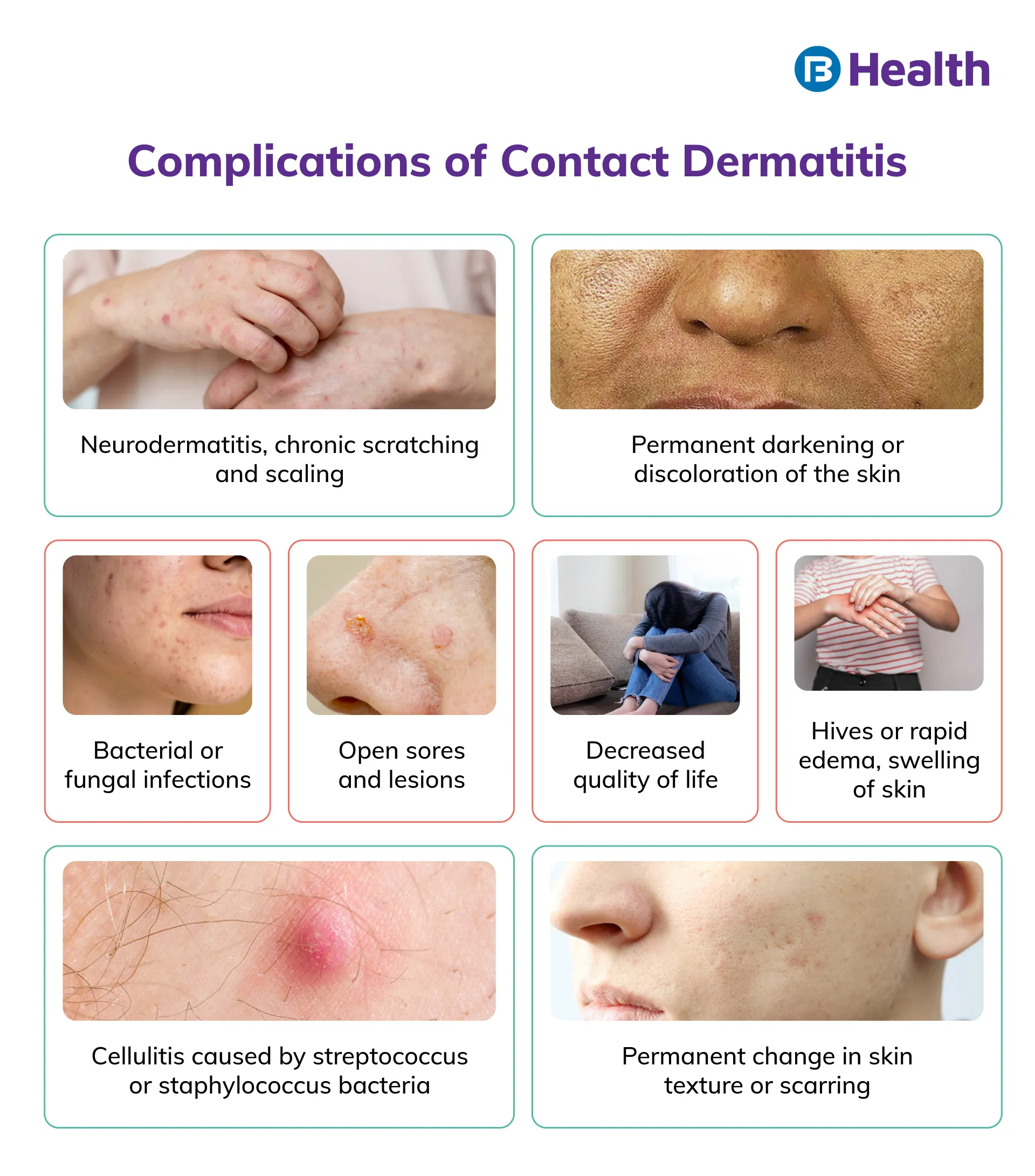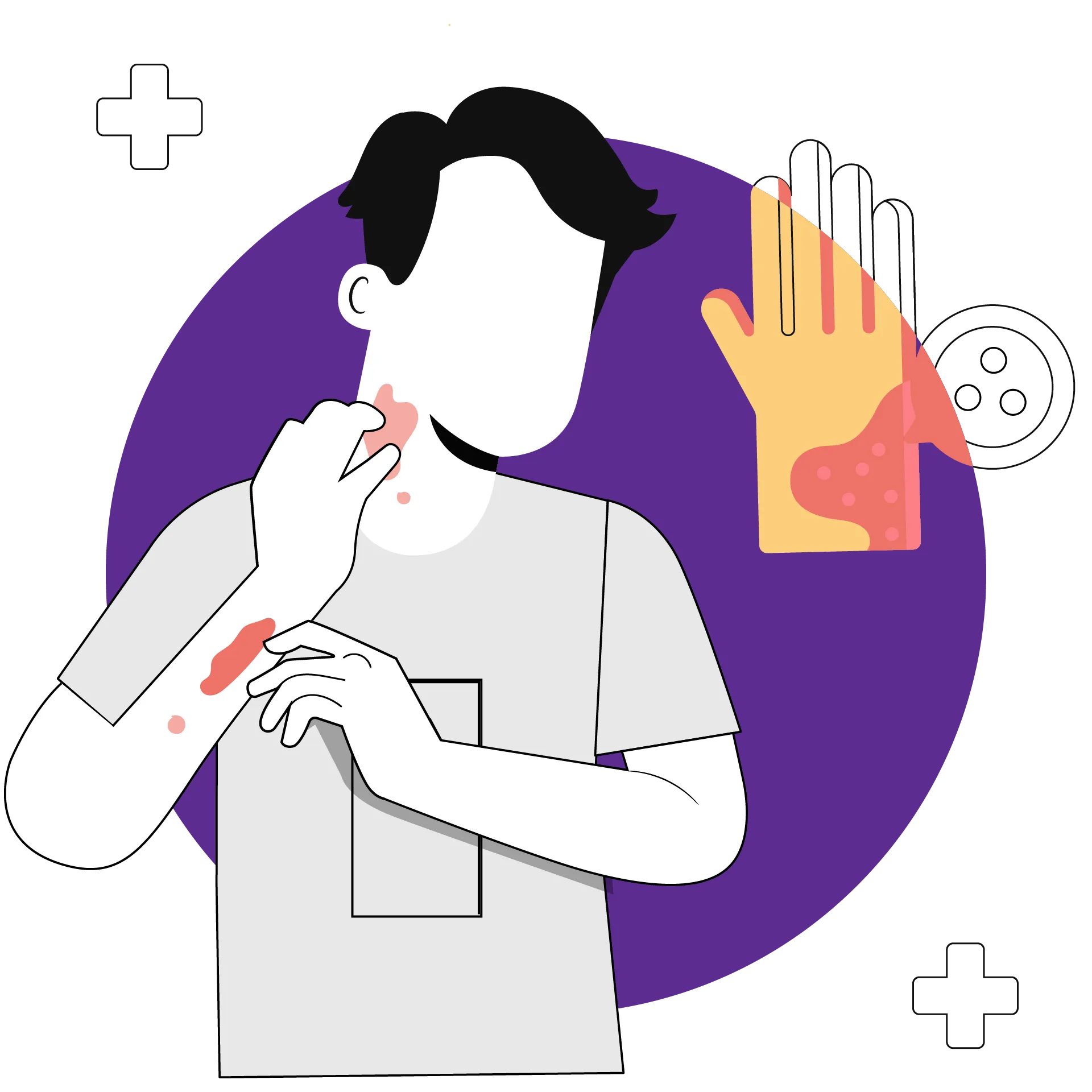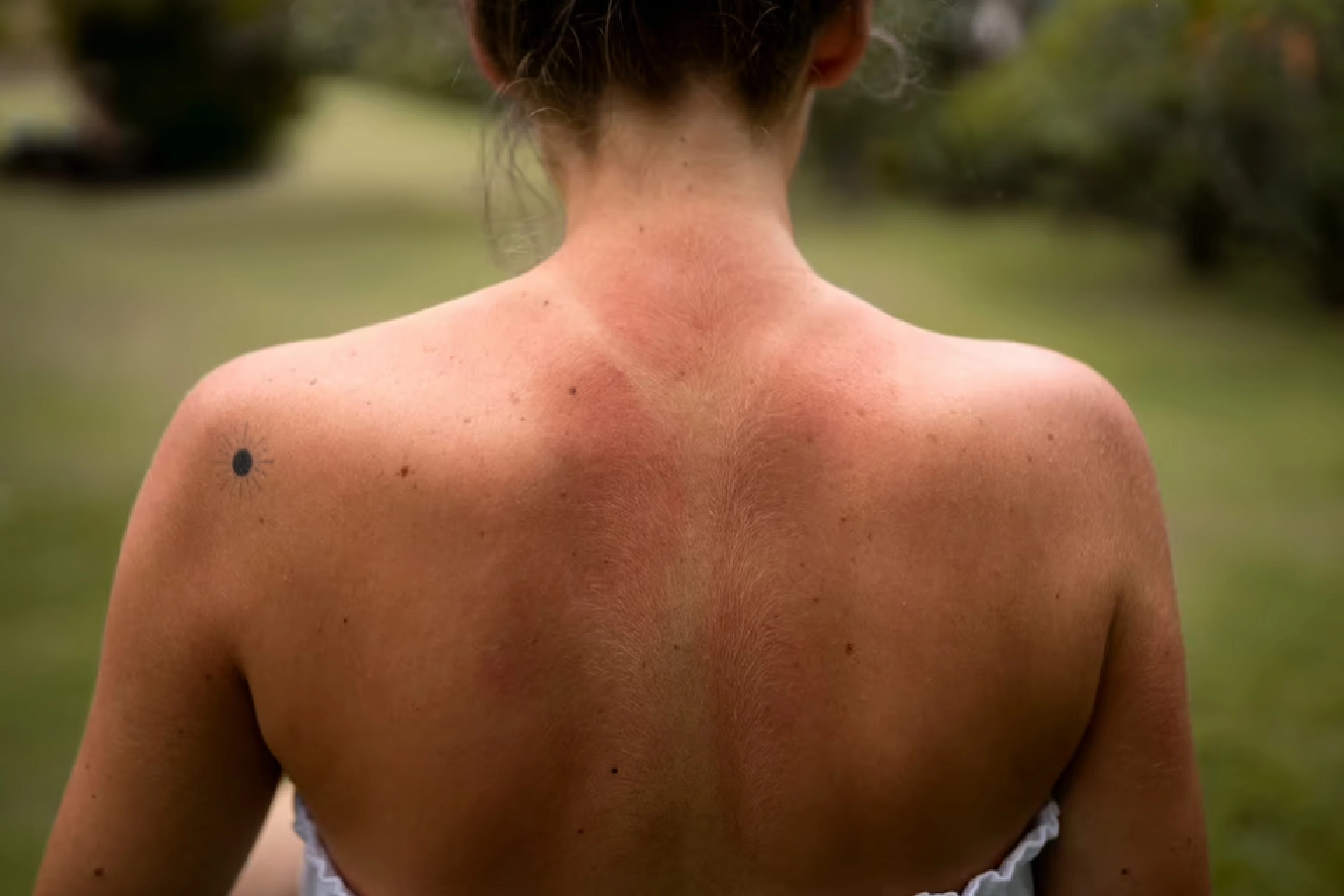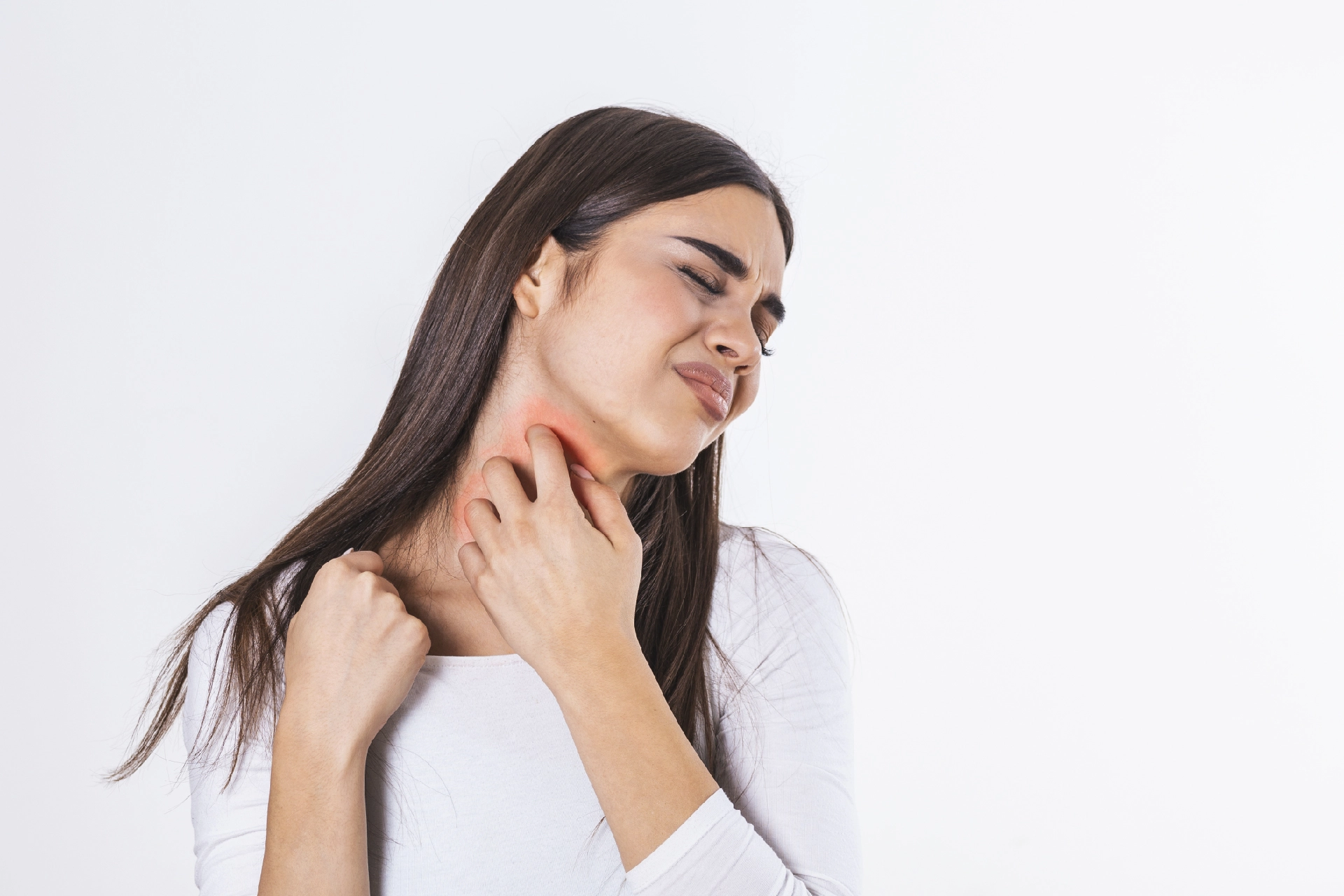Physical Medicine and Rehabilitation | 4 min read
Contact Dermatitis: Types and Effective Tips for Treatment!
Medically reviewed by
Table of Content
Key Takeaways
- Allergic contact dermatitis is a skin reaction to allergens
- Irritant contact dermatitis is a skin reaction to irritants
- Red itchy rashes are symptoms of contact dermatitis
Skin inflammation or irritation is referred to as dermatitis. Contact dermatitis is an allergic or irritant reaction to allergens like poison ivy or irritants like a chemical [1]. It causes red, itchy skin rashes. They form when you come in contact with substances such as:
- Soaps
- Cosmetics
- Plants
- Jewelry
- Fragrances
Contact dermatitis is a common occupational disease in industrialized nations [2]. In fact, 1 in 5 people suffer from allergic contact dermatitis [3]. Although this rashes aren't severe, contagious or life-threatening, they can make you feel uncomfortable. You can treat them effectively by avoiding the cause of the allergic reaction. Read on to learn more about contact dermatitis causes, symptoms, and treatment.
Additional Read: Blisters: Causes and Symptoms
Contact Dermatitis Types
- Allergic Contact Dermatitis
This condition is a result of an immune reaction in your skin when it comes in contact with allergens or substances to which you are sensitive. Your immune system releases white blood cells into the skin that releases chemical mediators of inflammation. This causes an itchy rash that may take several minutes, hours or days to develop.
Allergens such as metals in jewelry, cosmetics, and fragrances affect only the area of your body they come in contact with. However, certain allergic substances that enter your body through foods and medicines can also trigger a reaction.
- Irritant Contact Dermatitis
This is a condition that is more common than allergic contact dermatitis. This skin reaction occurs when the outer layers of your skin come in contact with a chemical substance or toxic material. It develops a rash, which is more painful than itchy.
Your skin may even react to strong irritants in a single exposure. Sometimes, symptoms may develop after repeated exposures to strong or mild irritants. In some cases, people develop a tolerance to certain irritant substances over time.
Symptoms of Contact Dermatitis
Some common symptoms of contact dermatitis include:
- Rashes
- Redness
- Pain
- Hives
- Itchiness
- Ulceration
- Tenderness
- Bumps and blisters
- Dark or leathery skin
- Swelling and oozing
- Burning or stinging
- Open sores that form crusts
- Dry, cracked, flaky, or scaly skin
Contact Dermatitis Causes
- Causes of allergic contact dermatitis
Common allergens that cause this condition are:
- Fragrances
- Botanicals
- Preservatives
- Latex gloves
- Perfumes or chemicals
- Poison ivy or poison oak
- Nickel or gold jewelry
- Certain sunscreens and oral medications
- Antibiotics, oral antihistamines and other medications
- Formaldehyde in preservatives, disinfectants and clothing
- Deodorants, body washes, hair dyes, cosmetics and nail polish
- Ragweed pollen, spray insecticides and other airborne substances
- Balsam of Peru used in perfumes, cosmetics, mouth rinses and flavoring
- Causes of irritant contact dermatitis

Common irritants that cause this condition are:
- Body fluids such as saliva and urine
- Certain plants like poinsettias and peppers
- Acids such as battery acid
- Solvents such as nail polish remover
- Hair dyes and shampoos
- Alkalis like drain cleaners
- Paints and varnishes
- Harsh soaps or detergents
- Resins, plastics, and epoxies
- Bleach and detergents
- Kerosene and rubbing alcohol
- Pepper spray
- Sawdust, wool dust, and other airborne substances
- Fertilizers and pesticides
Contact Dermatitis Treatment and Prevention
Most cases of this can heal on their own. The treatment for both contact dermatitis types is the same. Below are some prevention and treatment measures you can follow.
- Identify allergens and irritants that cause rash or skin reactions. Then take steps to avoid or lower your exposure to them.
- Wash your skin with warm water and fragrance-free soap after coming in contact with a rash-causing substance.
- Apply corticosteroid creams or anti-itching creams to relieve itching and inflammation.
- Some oral steroids such as prednisone can provide relief from symptoms of rash, which do not respond to treatments like antihistamines.
- Wear protective items like face masks, gloves, and goggles to stay safe from irritating substances.
- Apply moisturizers on regular basis to restore your skin and keep it supple.
- Take prescribes immunosuppressive medications.
To take good care of your skin health, consume foods and supplements that are beneficial. Learn about the skin benefits of castor oil or the benefits of beta carotene in boosting your skin health. To know more, book an online doctor consultation with dermatologists on Bajaj Finserv Health. Get the best skincare tips from the top skincare experts near you!
References
- https://my.clevelandclinic.org/health/diseases/6173-contact-dermatitis
- https://www.e-ijd.org/article.asp?issn=0019-5154;year=2020;volume=65;issue=4;spage=269;epage=273;aulast=Ghosh#ref8
- https://jamanetwork.com/journals/jamadermatology/fullarticle/2775575
Disclaimer
Please note that this article is solely meant for informational purposes and Bajaj Finserv Health Limited (“BFHL”) does not shoulder any responsibility of the views/advice/information expressed/given by the writer/reviewer/originator. This article should not be considered as a substitute for any medical advice, diagnosis or treatment. Always consult with your trusted physician/qualified healthcare professional to evaluate your medical condition. The above article has been reviewed by a qualified doctor and BFHL is not responsible for any damages for any information or services provided by any third party.





